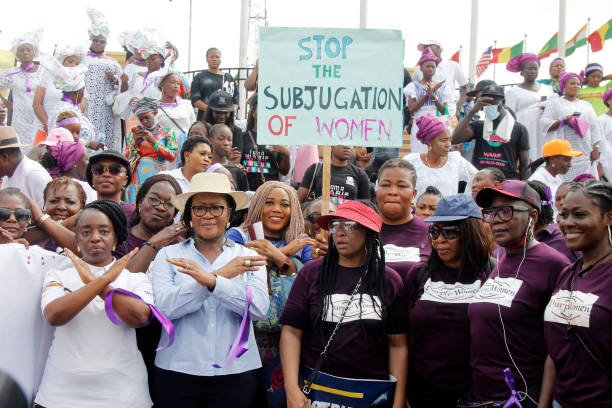In March 2022, the Nigerian National Assembly rejected five gender-related bills during a constitutional amendment process. Women across the country poured into the streets in protest. Again in 2024, the cycle repeated itself—promises made, expectations raised, and then crushed under the weight of silence and inaction. The failure of these gender bills is not just about politics. It is about power. It is about patriarchy. And it is about a system that is determined to keep things exactly as they are.
Nigeria’s constitution—while full of lofty ideals—still falls short when it comes to protecting women and promoting gender equity. The gender bills that keep failing aim to address long-standing inequalities, including citizenship rights for foreign husbands of Nigerian women, 35% affirmative action in political appointments, and the right for women to occupy positions of leadership. But these proposals never seem to make it past the gatekeepers: mostly male lawmakers, most of whom are unwilling to share power.
Let’s be clear. Nigeria’s gender crisis is not just a matter of representation—it’s structural. The idea that gender equality somehow threatens the balance of society is rooted in deeply patriarchal thinking. Many lawmakers argue that these bills conflict with “culture” or “religion,” using vague language to protect their personal interests and outdated traditions.
But who benefits from this cultural argument? It certainly isn’t the average Nigerian woman—who works, raises families, leads in communities, yet is largely shut out from making the decisions that shape national policy. It isn’t the girl in the village who is married off at 15 or denied access to education. It isn’t the market woman whose economic survival is never part of the national budget conversation.
The failure of these bills is not due to a lack of effort. Civil society groups, women’s rights organisations, and even some progressive politicians have fought for these reforms for years. But every time the bills come up, they are met with empty platitudes and excuses. The truth is that change will never come from a system that fears losing its hold on power.
It’s time to stop pretending this is a legislative oversight. The repeated rejection of gender bills is a clear, intentional political choice—a choice that tells Nigerian women they do not matter as much as men. That their voices are not valid. That their rights are negotiable.
So where do we go from here?
First, we must continue to push. Pressure must come from the people, from media, from grassroots campaigns that refuse to be silenced. Second, more women must be in politics—not just as tokens, but as decision-makers. The system cannot be changed if those affected are locked out of it.
Most importantly, Nigeria must reckon with its own hypocrisy. We celebrate women when they bring medals home, when they keep families afloat, when they drive social progress. Yet when it’s time to write laws, they are pushed aside.
A nation that refuses to protect half its population is not a nation that is truly free or democratic. Until Nigeria confronts the patriarchy embedded in its policies, its power structures, and its politics, gender bills will continue to fail—and with them, the promise of a fair and just society.
It’s time for the National Assembly to listen, not just to the loudest voices in power, but to the millions of women demanding to be seen, heard, and respected. Equality is not a favour. It is a right.





